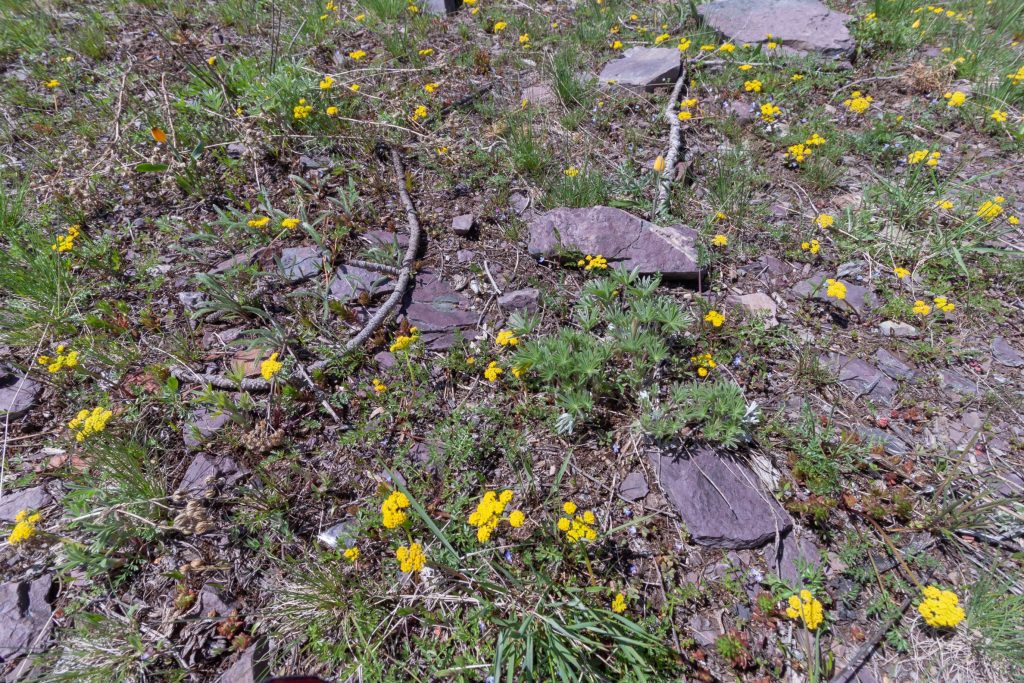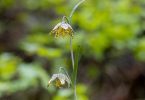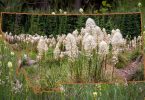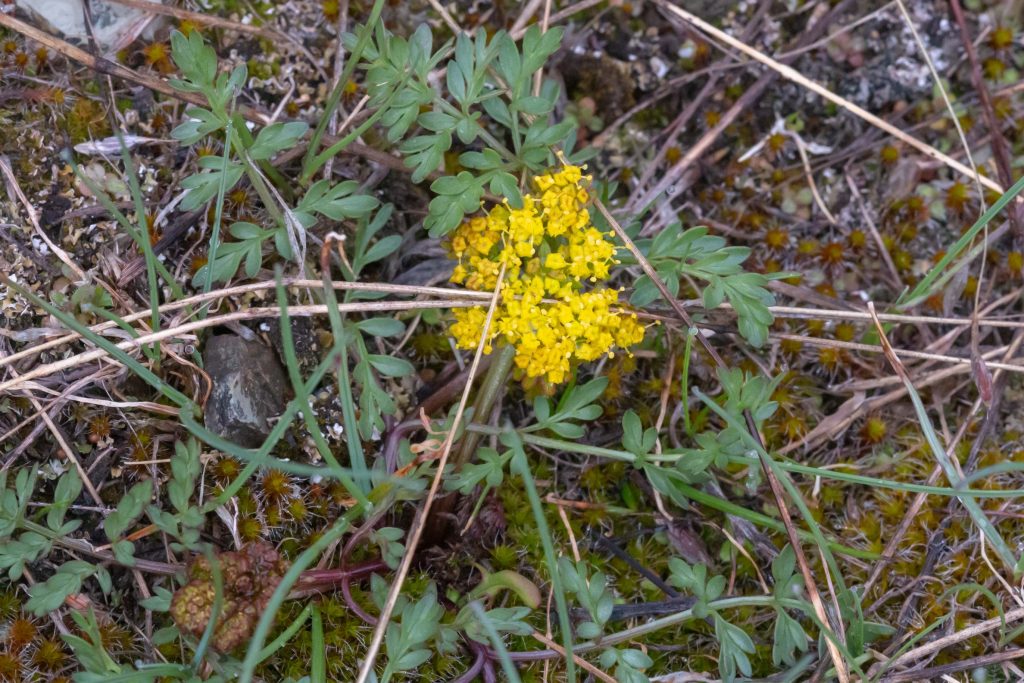
I found a couple of Cous Biscuitroot (Lomatium cous) in flower today. Wildflowers, on a whole, are slightly late in blooming compared to recent years. I have a favorite spot to look for this species; it’s on Blue Mountain immediate the frisbee golf course. At this southeast facing meadow I also found two other wildflower blooming: Nineleaf Biscuitroot and Low Larkspur. Plants of the Lomatium genus are generally identifiable by the multitude of small yellow flowers in an umbel.
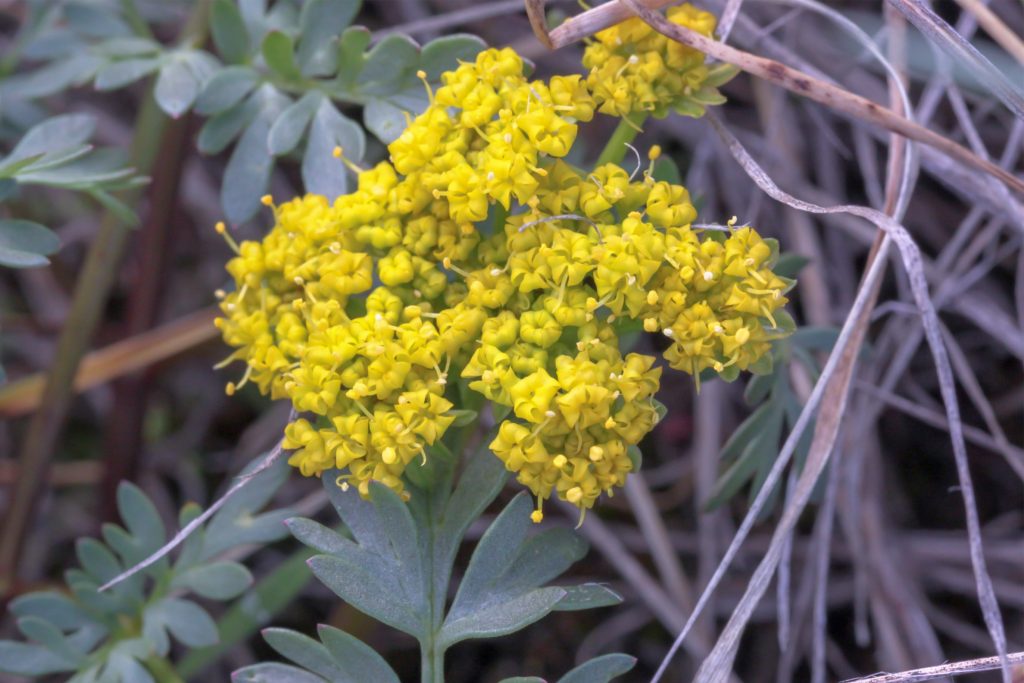
Wildflower of the Carrot or Apiaceae family
There are about 79 North American species (restricted to the western part) in the Lomatium genus. Latest taxonomy by the Angiosperm Phylogeny Group places Lomatium in the Apiaceae family. The family has more than 3,700 species of 434 genera, the 16th largest group of flowering plants (Wikipedia). Carrots, celery and parsley are members of this family, important food sources. Meriwether Lewis recorded in his journal what Cous Biscuitroot tasted like prepared by Nez Perce during April 1806:
The cows is a knobbed root of an irregularly rounded form not unlike the gensan [ginseng] in form and consistence. this root they collect, rub off a thin black rhind which covers it and pounding it expose it in cakes to the sun. these cakes are about an inch and 1/4 thick and 6 by 18 in width, when dryed they either eat this bread alone without any further preparation, or boil it and make a thick musilage; the latter is most common and much the most agreeable. the flavor of this root is not very unlike the gensang.
Lewis and Clark Pioneering Naturalists by Paul Russel Cutright, 1989 reprint – University of Nebraska
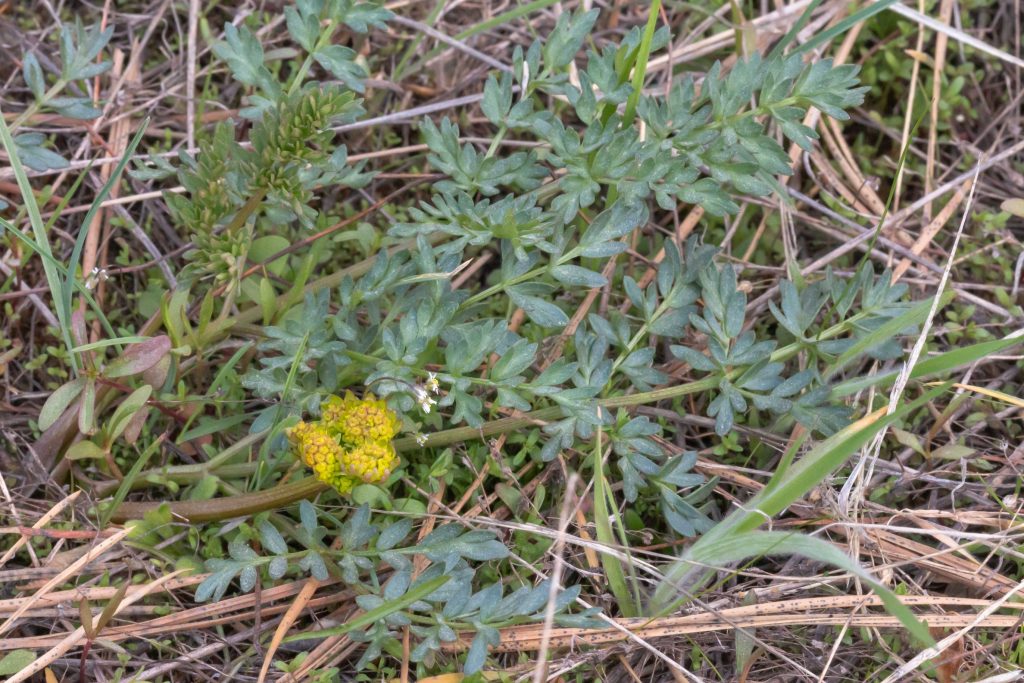
Careful attention must be paid to leaf shape, structure and the eventual fruit for positive identification of some related species. Line drawings by Claire Emery in Lesica (2012) are a visual aid in doing so. Speaking of visuals, below is a photo of an expanse of Cous Biscuitroot growing on a ridge of Blue Mountain
